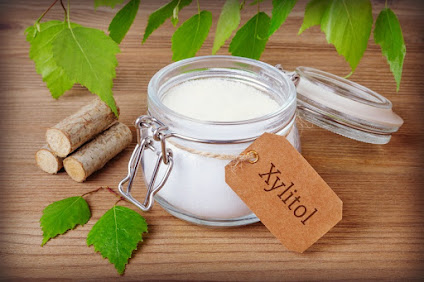Xylitol Market Trends: A Sweet Outlook for the Future
Xylitol Market: Sweetening the Future
The Xylitol market is experiencing a surge in growth and innovation as consumers increasingly seek healthier alternatives to sugar. With a growing awareness of the detrimental effects of excessive sugar consumption on health, xylitol has emerged as a promising sweetener, and the market for this natural sugar substitute is poised for remarkable expansion.
What is Xylitol?
Xylitol market is a naturally occurring sugar alcohol found in various fruits and vegetables, as well as in small amounts in the human body. It is known for its sweet taste, which is comparable to sucrose (table sugar), but with only two-thirds of the calories. What sets xylitol apart is its minimal impact on blood sugar levels, making it an attractive option for diabetics and those following low-carb diets.
Health Benefits Driving Market Growth
The growing awareness of the adverse effects of excessive sugar consumption, including obesity, diabetes, and dental problems, has led consumers to seek healthier alternatives. Xylitol, with its unique combination of sweetness and health benefits, is gaining traction as a sugar substitute. Notably, xylitol does not promote tooth decay and has even shown potential to prevent it by inhibiting the growth of cavity-causing bacteria.
In addition to dental health benefits, xylitol has a low glycemic index, making it suitable for individuals with diabetes. It also has fewer calories than sugar, making it an appealing choice for those looking to manage their weight.
Market Drivers
Several key factors are driving the growth of the xylitol market:
Consumer Health Awareness: Increased health consciousness among consumers is one of the primary drivers. As people become more informed about the health risks associated with sugar consumption, they are actively seeking healthier alternatives.
Rising Demand for Low-Calorie Sweeteners: The global demand for low-calorie sweeteners is on the rise due to the increasing prevalence of obesity and related health issues. Xylitol, with its sweetening power and lower calorie count, fits this demand perfectly.
Dental Health: The dental health benefits of xylitol, such as cavity prevention and reduced risk of tooth decay, have garnered significant attention. This has led to its adoption in dental care products like chewing gum and toothpaste.
Growing Diabetic Population: As the global diabetic population continues to grow, there is a rising demand for sweeteners that do not affect blood sugar levels adversely. Xylitol's low glycemic index makes it a preferred choice for this demographic.
Challenges and Opportunities
While the xylitol market is poised for growth, it faces some challenges, including cost constraints and production limitations. Xylitol is primarily extracted from birch wood or corn cobs, and fluctuations in the supply of these raw materials can impact production costs.
However, these challenges also present opportunities for innovation and diversification within the market. Research into alternative sources of xylitol production, such as agricultural waste, is ongoing and could lead to a more sustainable and cost-effective supply chain.
Market Segmentation
The xylitol market demand can be segmented into various categories, including product types, applications, and regions. Common product types include xylitol gum, xylitol mints, xylitol chocolates, xylitol syrup, and more. Applications span across food and beverages, pharmaceuticals, personal care products, and the dental industry.
Conclusion
The xylitol market is on an upward trajectory, driven by increasing consumer awareness of the health benefits associated with this natural sugar substitute. With a growing demand for low-calorie sweeteners and a rising diabetic population, xylitol is well-positioned to gain prominence in the food industry. Overcoming production challenges and exploring alternative sources will be key to sustaining this growth and making xylitol an even more accessible and affordable choice for consumers worldwide. As the market continues to evolve, we can expect to see a wider range of xylitol-based products hitting the shelves, sweetening the future for health-conscious individuals and those looking to reduce their sugar intake.



.png)
Comments
Post a Comment